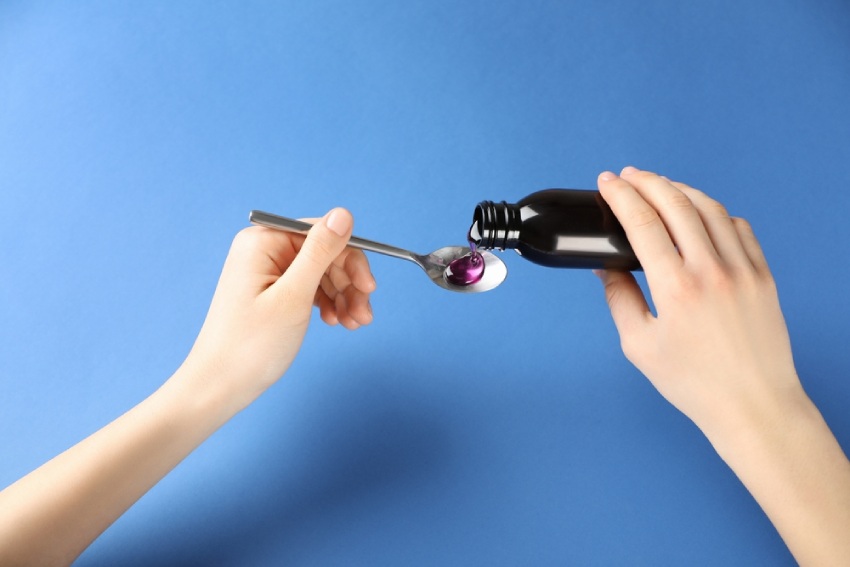Punarnavarishta, a traditional Ayurvedic herbal concoction, holds a significant place in Ayurvedic medicine due to its potential health benefits. It is prepared by fermenting various potent herbs and natural ingredients, which are renowned for their therapeutic properties.

This article delves into the detailed aspects of Punarnavarishta, including its uses, drug cost, benefits, side-effects, composition, substitutes, and safety advice.
Overview
Overview Punarnavarishta Syrup
Uses
Uses of Punarnavarishta Syrup
Punarnavarishta has been employed in Ayurvedic medicine for centuries to address a variety of health concerns. Here are some of its primary uses:

Liver Health: One of the standout uses of Punarnavarishta is its ability to promote liver health. It aids in detoxification and rejuvenation of the liver, making it particularly useful in treating liver disorders such as jaundice and hepatitis.
Diuretic: Punarnavarishta is known for its diuretic properties, which help in flushing out excess fluids and toxins from the body. This makes it beneficial for individuals dealing with water retention and edema.
Kidney Health: It is often prescribed for kidney-related ailments as it supports kidney function and helps in managing conditions like kidney stones and urinary tract infections.
Cardiovascular Health: Punarnavarishta is believed to have a positive impact on heart health.
Anemia: Ayurvedic practitioners sometimes recommend Punarnavarishta to individuals suffering from anemia, as it can boost hemoglobin levels and enhance overall blood quality.
Weight Management: Due to its diuretic and detoxifying properties, Punarnavarishta can be used as an adjunct in weight management programs by eliminating excess water weight and toxins.
Digestive Health: Punarnavarishta aids digestion by stimulating the digestive fire (agni) and improving nutrient absorption. It can be helpful in cases of indigestion, bloating, and constipation.
General Health Tonic: In Ayurveda, Punarnavarishta is considered an excellent general health tonic. It rejuvenates the body, increases vitality, and enhances overall well-being.
Have you looked at zincovit tablet benefits?
Drug Cost
Punarnavarishta Syrup Cost in India
The cost of Punarnavarishta can vary depending on several factors, including the brand, quantity, and location of purchase.

Generally, Ayurvedic medicines tend to be affordable compared to their allopathic counterparts. A typical 450 ml bottle of Punarnavarishta can range from $5 to $15 USD.
It’s important to note that the price may differ between different regions and suppliers. Additionally, some brands may offer variations of Punarnavarishta with different ingredients or concentrations, which can also affect the cost.
While Punarnavarishta is relatively affordable, it’s crucial to consult with a qualified Ayurvedic practitioner before starting any Ayurvedic medication to ensure it is the right choice for your specific health needs.
Get information about – Ultracet tablet uses
Benefits and Side-effects
Benefits and Side-effects of Punarnavarishta Syrup

Benefits:
Natural Detoxification: Punarnavarishta aids in the detoxification process by removing harmful toxins from the body, promoting overall well-being.
Liver Support: It supports liver function and helps in the treatment of liver disorders like jaundice and hepatitis.
Improved Digestion: This Ayurvedic tonic enhances digestion by increasing digestive fire (agni) and promoting better nutrient absorption.
Diuretic Action: Punarnavarishta acts as a diuretic, aiding in the elimination of excess fluids and toxins, which can be particularly useful for those dealing with water retention.
Kidney Health: It supports kidney function and can help manage kidney stones and urinary tract infections.
Heart Health: Punarnavarishta may help regulate blood pressure and reduce cholesterol levels, thus benefiting overall cardiovascular health.
Anemia Management: It can boost hemoglobin levels, making it useful for individuals with anemia.
You can also look at the viagra tablet price.
Side-effects:
While Punarnavarishta is generally considered safe when used as directed by a qualified Ayurvedic practitioner, some individuals may experience mild side-effects, including:
Gastrointestinal Discomfort: Some users may experience mild gastrointestinal discomfort, such as nausea or diarrhea, especially if the dosage is not appropriate.
Interactions: If taken in conjunction with certain medications, Punarnavarishta may interact with them, potentially affecting their efficacy. It is essential to inform your healthcare provider about all the medications you are taking.
It’s crucial to consult with an Ayurvedic practitioner or healthcare provider before incorporating Punarnavarishta into your wellness routine to ensure it’s suitable for your individual health needs and to determine the appropriate dosage.
Explore more about – Combiflam tablet uses
Composition
Composition of Punarnavarishta Syrup
Punarnavarishta is prepared through a meticulous fermentation process, combining various herbs, roots, and natural ingredients. The precise composition can vary among different brands and preparations, but some common ingredients typically found in Punarnavarishta include:

Punarnava (Boerhavia diffusa): The primary ingredient, Punarnava, is known for its diuretic and anti-inflammatory properties.
Dashmoola: This blend of ten roots is renowned for its rejuvenating and anti-inflammatory effects.
Guda (jaggery): Jaggery is used as a natural sweetener in the preparation and also serves as a carrier for the herbs.
Dhataki (Woodfordia fruticosa): This flower is often added to Ayurvedic preparations for its medicinal properties and fragrance.
Water: Pure water is used in the fermentation process to extract the active compounds from the herbs.
Herbal extracts: Some formulations may include additional herbal extracts to enhance specific therapeutic effects.
The combination of these ingredients is allowed to ferment for a specific period, allowing the herbs to release their active compounds into the liquid.
This fermentation process is believed to enhance the bioavailability and potency of the herbs, making Punarnavarishta an effective Ayurvedic tonic.
Read about – Combiflam syrup uses
Substitute
Substitute to Punarnavarishta Syrup
While Punarnavarishta is a popular Ayurvedic formulation, there are several other Ayurvedic medicines with similar benefits.
However, it’s essential to consult with an Ayurvedic practitioner before switching to an alternative, as the choice of medication should be tailored to your specific health needs. Some Ayurvedic alternatives that may be considered include:
Liv 52: Liv 52 is a widely used Ayurvedic formulation for liver health and detoxification.
Gokshuradi Guggulu: This herbal blend is known for its diuretic and kidney-supporting properties.
Triphala Churna: Triphala powder or tablets offer digestive benefits and support detoxification.
Kutki Churna: Kutki is another herb used for liver health and detoxification.
Punarnava Capsules: If you prefer a different form, Punarnava capsules are also available for similar benefits.
Lohasava: Lohasava is another Ayurvedic tonic known for its iron-boosting properties, making it suitable for individuals with anemia.
Again, it is strongly recommended to consult with a qualified Ayurvedic practitioner or healthcare provider before making any substitutions or changes to your Ayurvedic regimen to ensure it aligns with your health goals and requirements.
Also read about – Limcee tablet uses
Safety Advice
Safety Advice for Punarnavarishta Syrup
To ensure the safe and effective use of Punarnavarishta, consider the following safety advice:

Consult an Ayurvedic Practitioner: Before starting Punarnavarishta or any Ayurvedic medication, consult with a qualified Ayurvedic practitioner. They can provide personalized guidance based on your specific health needs.
Dosage: Follow the recommended dosage instructions provided by your practitioner or as indicated on the product label. Avoid self-medication and excessive consumption.
Allergies: If you have known allergies to specific herbal ingredients used in Punarnavarishta, inform your healthcare provider or Ayurvedic practitioner to avoid adverse reactions.
Pregnancy and Breastfeeding: If you are pregnant or breastfeeding, consult with a healthcare professional before using Punarnavarishta, as its safety in these situations is not well-documented.
Children: Use caution when considering Punarnavarishta for children, and consult with a pediatric Ayurvedic practitioner for appropriate dosing and safety information.
Storage: Store Punarnavarishta in a cool, dry place away from direct sunlight and heat to maintain its efficacy.
Quality: Choose Punarnavarishta from reputable and trusted Ayurvedic brands to ensure quality and safety.
Monitor for Side-effects: While Punarnavarishta is generally safe, monitor yourself for any adverse effects. If you experience severe side-effects, discontinue use and seek medical attention.
Lifestyle: Maintain a balanced diet and lifestyle alongside Punarnavarishta to maximize its benefits.
Punarnavarishta is a traditional Ayurvedic formulation with a wide range of potential health benefits, particularly related to liver, kidney, and cardiovascular health.
However, it is crucial to use it under the guidance of a qualified Ayurvedic practitioner and to be aware of its potential side-effects and interactions.
Also consider reading the kumaryasava.